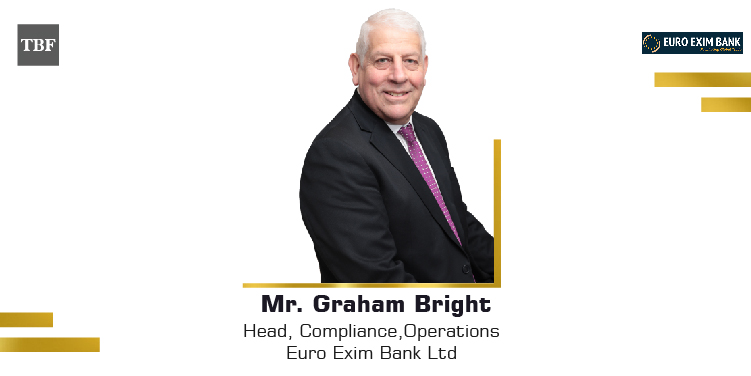We have come a long way since the initial asset trading systems. Over the course of 3000 years, the same philosophy has continued, however, with the addition of a slight difference. The modern world now relies much on technology. The technology associated with finance such as Distributed Ledger Technology, Blockchain, or AI has assisted to enrich the client experience.
FinTech has helped humans to take a tremendous leap from standardizing data elements and documents, to speed up transactions, verify identity, and protect inflight communications, reducing the proliferation of paper in each complex process, and ensuring instruction delivery.
On the side of Banking, where once data sharing was accessible through a single bank, has now been rationalized, standardized, and re-used between organizations. Not to mention, the regulation has taken a lead in protecting and supporting end clients in their money transactions.
Today, innovation is the answer to serving the worlds’ 3 billion unbanked people. Our success depends on agility, flexibility, and embracing of financial technology with better identity checking, faster remote account opening, access and control through mobile phones in developing markets, allowing more control to the end-user. This lowers account maintenance costs and increases overall coverage, making the delivery, maintenance, security, trusted services, and banking system participation easier.
With the thought above and embracing the developments in financial technology, The Business Fame magazine has introduced 2020’s Leading FinTech Companies to Watch. And we couldn’t be happier to commence this issue with a bank that is an innovative global financial institution. We would like to introduce Euro Exim Bank Ltd.
Euro Exim Bank’s (EEB) journey wouldn’t be conveyed without its seven robust principles. Understanding the environment around, the bank has been realistic in its approach towards profit, has exercised pragmatic management, hired professionals, eradicated unproductive systems, kept tabs on peers and competition, understood value and contribution above expenditure, and ultimately, has served the customers with the relevant needs.
Taking into account its surroundings and responsibilities, EEB has always and continues to be the long-term pre-eminent provider of sustainable trade finance services globally. Being driven by open APIs and experienced IT support, it digitizes all its processes and documents ensuring low-cost inter-operability between data, system, and partners.
Ultimately, EEB envisions to transform trade finance from a paper-based system to a digital one and bring efficiency, transparency, and cost-effectiveness, and most importantly, meeting the expectations of overgrowing tech-savvy clients.
The Robust Foundation
As a global bank, EEB’s ethics are focused on core principals and moral values backed by clear corporate, social responsibility policies. It involves fair play, compassion, and empathy for others, and supporting those who are unable to support themselves. It financially promotes local and foreign causes through fundraisers and activities under the charter of CSR, where substantial funds have already been collected and continue to be collected.
“We are a ‘Class A’ international banking license holder from Financial Services Regulatory Authority (FSRA) of St. Lucia, exercising strong due diligence, full compliance, and operational excellence in our processes.”
EEB assesses the environmental effect of trades, form of product, and collaborate with customers where fair trade is prevalent and sells/produce equally compensate and treat their workers with dignity and consideration from the ecological viewpoint of benefit evaluating earth and human before entering into any agreements.
EEB emphasizes on defining the terms ‘digital’ and ‘digitalization’ correctly. For EEB, being digital is the review, enhancement, and implementation of a strategy involving all processes across the organization, delivering the ability to rationalize, standardize and re-use data in multiple areas of the business, fully interoperable with internal and external sources, avoiding duplication, error and excess cost.
The digitalization of EEB is the foundation of modern governance, with unique initiatives like transferring conventional documentation (such as payment notes, types of payments, KYC evidence, etc.) to legally binding digital records, accessible through the cloud and processed, such as structured wet signatures with guaranteed signatory identities.
Transactions Made Simple
EEB is well-positioned in these unprecedented times for serving businesses and SMEs with an advanced blockchain-enabled SimpleX exchange network to gather and distribute immutable information and to help Ripple real-time transfers as well as low liquidity transactions with the underlying XRP cryptocurrency.
Ripple is the innovative technology company with a financial network (RippleNet) handling real-time, the minimal friction transmission of payments across a secure de-centralized DLT infrastructure, covering both fiat and non-fiat currency.
In addition to SWIFT instructions through 3rd party correspondents, EEB uses two unique Ripple services, namely xCurrent, speeding up and securing real-time payments, and on-Demand Liquidity enabling pay-outs in local currency with no exchange into dollars or the need for traditional correspondent banks, through use of the XRP digital asset, which is a game-changer in reducing capital liquidity requirements.
Erstwhile, customers have historically been unwilling to manage to limit the entry to funds to foreign currencies to international markets. Now, consumers can access a large volume, frictionless, inexpensive, reliable, quick, safe payments, and tool movement across the globe via service distribution with other RippleNet participants.
EEB further automates and expands SimpleX’s trade finance capabilities and improves its user interface with real-time payment functionality with Ripple. The firm understands the barriers to the traditional world trade in some of the fastest-growing economies as well. The company cites the example of costly and uncompetitive access to funds, lack of trust and confidence and lack of business appetite and liquidity in small local banks, corruption, lack of knowledge in dealing with complex instruments and so the list goes on.
Real-time Ripple technology addresses these challenges by encouraging transactions to flow regardless of conventional bank activities and the time, difficulty, and costs involved. This is vital for Africa since businesses troubled by cash no longer have to wait days before the local currency is accessible to matching banks with the requisite financing. The funds arrive at the final destination and will be attributed to the advantage of time, low expense, immovability, and maximum audit trail on a recipient account in real-time.
“We aim to be the long-term pre-eminent provider of sustainable trade finance services globally”
A Partner in Industry
When asked about its digital footprints alongside other competitors, EEB cites that digital competitors are not much of a challenge. Instead, it sees itself as more of a partner in the industry. The Bank retains its position of trustworthy helper with its specialization and ensuring trust and integrity in all its proceedings.
In the times of the pandemic, EEB has noticed the rise in and recent financial penalties, scams, and frauds that have collectively changed the outlook for competition in many Tier 1 banking institutions. Some large corporations have left the business, liquidity is more costly, risks are being re-evaluated and clients in perceived high-risk jurisdictions are finding their ability to compete severely compromised in international markets.
Hence, it neither competes with the new wave of digital-only alternative finance providers nor attacks the long-held monopoly on payments and SCF specialists. On the contrary, it works alongside them and provides the level of financing that the small SME’s require to become competitive in their trade landscape.
The bank pays homage to its digital strategy, built and support from IT experts that have equipped EEB with future-ready products, supporting dedicated issuance, and remittance services.
Future Lookout
While the modern world seeks out financial technology to make trading assets easier, EEB perceives that the financial inclusion to remain the biggest issue in the future. For instance, in rural economies, the system works solely on cash, physical banks are remote and costs for maintaining low-value accounts are high.
Hence, EEB predicts the next day deliverables to be the value addition of simpler transfers, cheaper savings, and pensions products, not only for day-to-day transactions but also to safeguard and promote long-term financial welfare.
In terms of technology, EEB’s platforms are future-ready and blockchain-enabled incorporating advanced payment mechanisms with digital assets, enabling trade through issuance and relay of financial instruments such as Letters of Credit and Standby Letters of Credit that keep the circle of global goods moving.
“We standby to support the reformation of business and supply chains and offer our expertise, especially in emerging markets hit by lack of trust, liquidity, fiat currency and infrastructure”
EEB is spreading its footprint with a significant sales team in India, and more specific offices in Africa, the Middle East, and Asia. These will serve emerging markets and challenge existing areas where major banks are tactically withdrawing through de-risking.
With the role defined as the pre-eminent issuer of financial instruments driving and facilitating world trade, EEB looks to uncap the potential of East Africa, emerging manufacturing hubs, and the BRI goods corridors spanning Europe and Africa.
With Asia and Africa being the fastest emerging and growing markets for trade, Euro Exim Bank has uniquely positioned itself to serve buyers across the continents.









